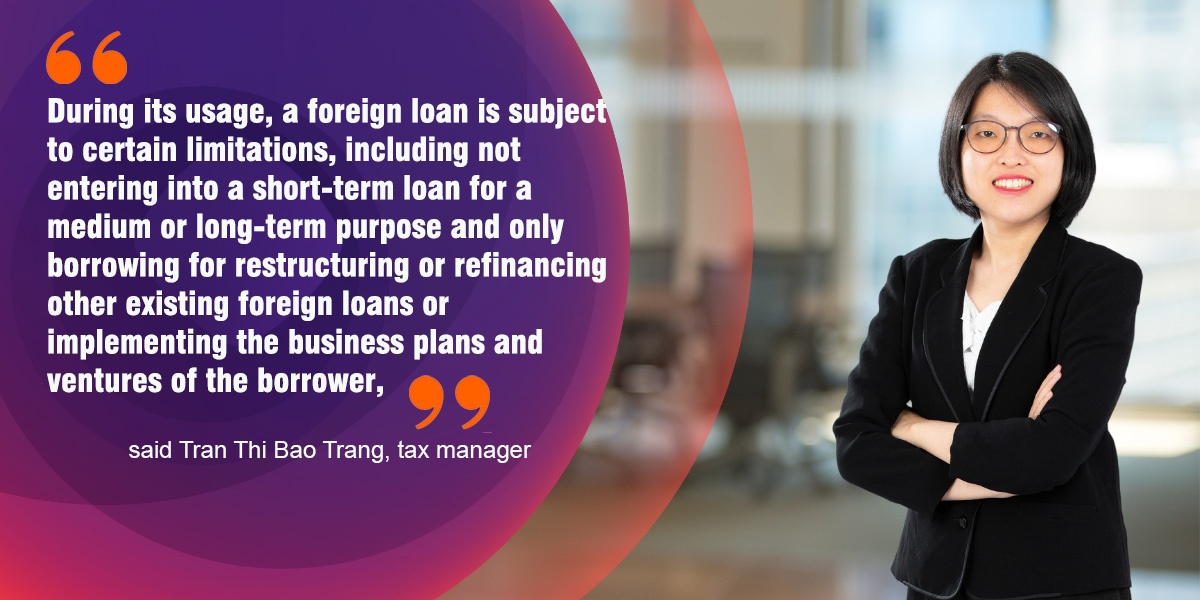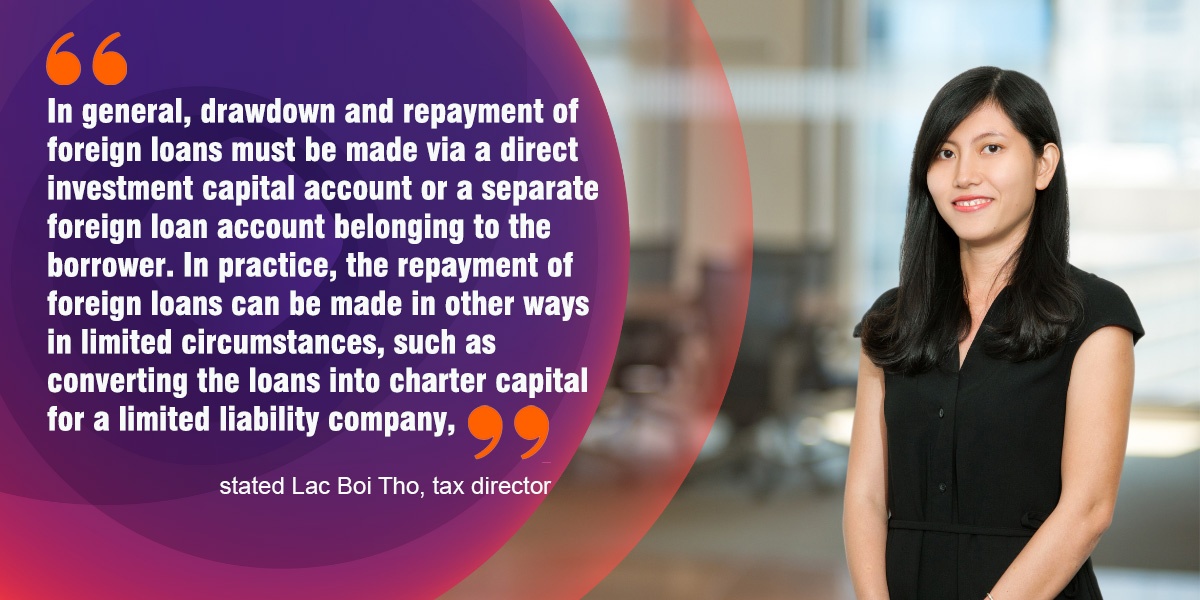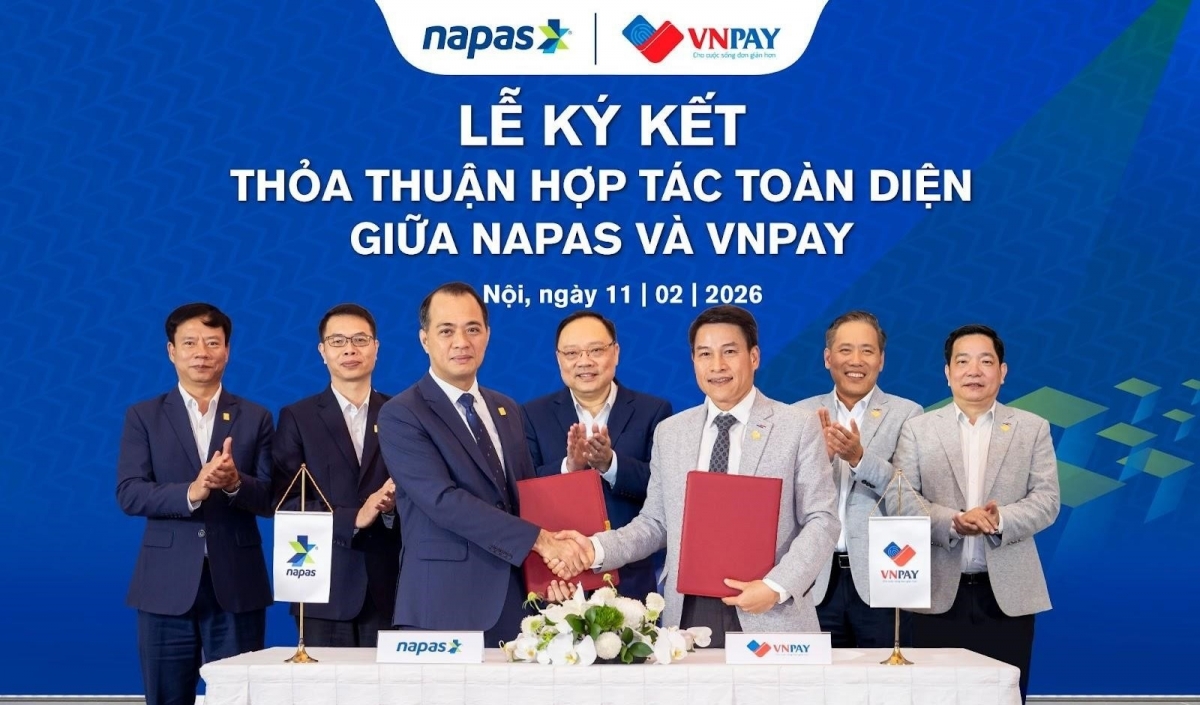INTERNATIONAL INVESTMENT
AND PORTAL
With loan transactions, most lenders raise concerns as to the legal requirements for them to implement the loans and collections, specifically when foreign currencies are applied with foreign lenders. Borrowers, on the other hand, are concerned about tax deductibility.
To address these concerns, the experts from Grant Thornton Vietnam will discuss the general principles and highlight key tax issues related to foreign loans in Vietnam based on the current regulations and their practical experience.
Regulations for loans in VietnamIf domestic loans can be rather challenging to put into practice, foreign loans are much more difficult as they must comply with the laws on foreign currency management.

A short-term foreign loan (for 12 months or less) is not required to be registered with the State Bank of Vietnam (SBV), while a medium or long-term foreign loan of more than 12 months must initially be registered with the SBV.
Periodically, and no later than the fifth day of the next month, the Vietnamese borrower has to report online to the SBV about the performance of its short, medium and long-term loans via the SBV’s portal.
Notably, deferred payments for goods imports are also considered as a form of foreign loan, on which the first fund withdrawal date (i.e. either (i) the 45th day from the completion date of the inspection stated on the customs declaration that has been cleared or (ii) the 90th day from the issuance date of transport documents) is prior to the final payment date. For these of types of foreign loans, it is still mandatory to file monthly online reports without registration to the SBV.
On a separate point, a foreign-invested enterprise may only borrow money to implement such a project up to an amount that is the difference between the borrower’s contributed capital and the total investment capital, as indicated in its investment registration certificate. All existing onshore and offshore long-term loans of the borrower will be counted towards this borrowing limit.
Tax-related issues on loans in VietnamLoans without interest: It has been seen in practice that loans between group entities (i.e. loans from a parent company, or an individual shareholder or affiliate) that are structured without interest payments have drawn significant attention from the Vietnam tax authorities in recent years. In particular, they may impose interest for tax collection purposes, as they consider that these transactions do not conform to market prices according to their relevant rulings.

Tax implications on interest payments: From the lender's perspective, interest income from loans is subject to tax in Vietnam, with the applicable tax rate as follows:
If an enterprise operating under Vietnamese laws gives a loan to other individuals or enterprises, the interest income from such a loan is recorded as other income and subject to Corporate Income Tax (CIT) at the standard rate of 20 per cent.
Interest income from loans is not subject to VAT, but still needs to be supported with VAT invoices. Then, the Vietnamese enterprises should allocate input VAT proportionally against such non-taxable revenue.
For loans given by an individual who is permitted to lend in a similar way to an enterprise, interest income from loans is fully taxed under the current regulations on Personal Income Tax at the flat rate of 5 per cent regardless of tax residency status.
For loans given by a foreign entity, a withholding tax – which is called Foreign Contractor Tax in Vietnam – is imposed for any foreign entities generating income from the provision of goods or services in Vietnam, and should normally be applied at 5 per cent CIT with VAT exemption.
When the Vietnamese enterprise is a borrower, the interest payment for a loan from an individual or enterprise that is to be paid during the loan term is considered as a deductible expense for CIT calculations, provided it qualifies with all the requirements in line with the CIT regulations.
In addition, the cap on tax deductibility of interest expense applied to the Vietnamese enterprises is currently 30 per cent of earnings before interest, taxes, depreciation, and amortisation (EBITDA). Such a cap applies to net interest expense (i.e. after offsetting them with interest income from loans and deposits). Under negative EBITDA, all incurred interest expenses (after deducting loan and deposit interest) are not deductible in that tax year.
However, non-deductible interest expenses can be carried forward to the subsequent five years. This situation is unclear for negative EBITDA, which requires a careful approach for a specific case.
Planning pointsIn light of the above, the regulations on the management of offshore loans in particular, and on tax matters for loans in Vietnam in general, are constantly updated and amended.
Drawing experience from implementing the previous legislation, the amended regulations are stricter than before. Their future enactment will certainly affect enterprise’s financial resources. Therefore, businesses operating in Vietnam must keep track of the updated regulations or contact professional advisors for the necessary assistance. Only then can they both mitigate the tax risks and avoid the pitfalls.
The authors may be contacted at: BaoTrang.Tran@vn.gt.com; Tho.Lac@vn.gt.com
 30 years of accompanying the country’s key economic sectors part3
30 years of accompanying the country’s key economic sectors part3
Over the past three decades, Vietnam Investment Review has gained positive status in the country’s business press circle. With its particular focus on featuring hot issues related to economics, trade, and investment in Vietnam, as well as the country’s external policies, VIR has earned praise from international organisations, embassies, experts, and the business community as it provides them with insightful and useful information on the ups and downs of the country’s exciting economic development.
 Coordinating to establish an efficient reopening
Coordinating to establish an efficient reopening
Vietnam is set to reopen for international tourists, thus providing positivity for a market revival. Kenneth Atkinson, founder and senior advisor at Grant Thornton Vietnam, advises on the pitfalls that could hinder these efforts.
 I am Vietnamese, says Atkinson
I am Vietnamese, says Atkinson
Opening the story with VIR, Kenneth M Atkinson said, "I am Vietnamese," and showed the reporter his ID card with the Vietnamese name Pham Kien Son.
 Clarifying rights of foreign individuals to own property in Vietnam
Clarifying rights of foreign individuals to own property in Vietnam
Whether foreigners have the right to own their land and property in Vietnam and how they can get these rights are among the key concerns of many who wish to live and work in Vietnam long term. Valerie Teo, tax partner, and Nghiem Xuan Hong An, senior manager of Tax Services at Grant Thornton Vietnam, analyse the requirements.



















